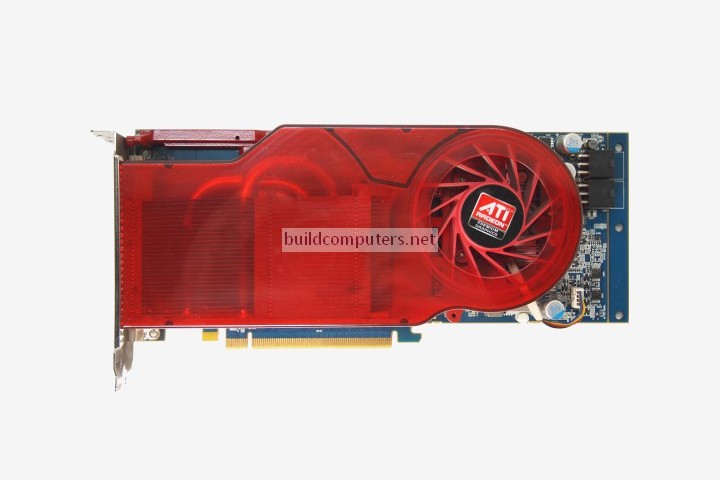- AMD Community
- Communities
- General Discussions
- General Discussions
- I need a graphics card to run War Thunder
General Discussions
- Subscribe to RSS Feed
- Mark Topic as New
- Mark Topic as Read
- Float this Topic for Current User
- Bookmark
- Subscribe
- Mute
- Printer Friendly Page
- Mark as New
- Bookmark
- Subscribe
- Mute
- Subscribe to RSS Feed
- Permalink
- Report Inappropriate Content
I need a graphics card to run War Thunder
MY COMPUTER:
HP Elite desktop
Windows 10 Pro
intel(R) core i7-4770 CPU @ 3.40ghz
Installed RAM: 16.0 GB
System: 64-bit operating sys, x64-based processor
POWER:
320W
Graphics: (CURRENT)
Intel (R) HD Graphics 4600
PCI SLOTS:
- two PCI Express x1 expansion slots
- one PCI Express x16 expansion slot
- one PCI Express x16 expansion slot that is downshifted to a x4 slot
Monitors:
2 Benq monitors 21-inch LED set for resolution 1920 x 1080
using 2 DVI in puts
Mouse:
Wireless Geyes (gaming)
Can someone please help me?
Steve
- Mark as New
- Bookmark
- Subscribe
- Mute
- Subscribe to RSS Feed
- Permalink
- Report Inappropriate Content
Honestly, given that tiny OEM power supply from HP that probably isn't even capable of 320w, I would not recommend any GPU purchase.
- Mark as New
- Bookmark
- Subscribe
- Mute
- Subscribe to RSS Feed
- Permalink
- Report Inappropriate Content
320w is frankly more than enough... people always get twitchy about smaller PSUs, but the PSU claim (esp. on AMD Boxes) are usually massively over conservative.
The Core i7 4770 is 82w at least according to Intel., which means it's probably drawing 91 - 105w.
You probably have an Optical Drive, and a HDD but I'd wager very little beyond that.
If we assume a "Budget" PSU., you can expect ~75% Efficiency ... so 250w Effective Delivery.
So we factor in the System using ~35w (which is about standard for Optical / HDD / Audio / Mouse & Keyboard) then you've got about 100w you can be guaranteed., but likely 120w before you start running into issues.
You can run an RX 5500 XT on that... AMD claims it's 130w, but most will Undervolt to 95 - 100w.
That'll give you close to RX 580 / GTX 1060 Performance, and be within your Power Budget.
- Mark as New
- Bookmark
- Subscribe
- Mute
- Subscribe to RSS Feed
- Permalink
- Report Inappropriate Content
This answer in Quora seems to agree with what you are saying:

But let me ask you question about "Typical Board Power".
Yes, the RX5500XT is rated by AMD Typical Board Power of 130 watts. But when the GPU card is under very heavy loads or stressed it will easily surpass the 130 watt mentioned as "Typical Board Power"
This review from tech site shows the power consumption of various GPUs while under stress and playing a high end Video game: Power, Temperature, & Noise - The AMD Radeon RX 5500 XT Review, Feat. Sapphire Pulse: Navi For 1080p

So I don't believe a 320 watt PSU will supply enough power if the CPU or GPU are under heavy loads.
This website seems to give good data on Typical Power Consumption of various Motherboard connected hardware including the Motherboards: Typical Power Consumption of PC Components - Power Draw in Watts
Video Card Power Consumption

Load Power Draw | Idle Power Draw | |
Low End Graphics Card (Under $125) | 25 to 86 W | 5 to 10 W |
Mid End Graphics Card ($125 to $250) | 110 to 164 W | 8 to 13 W |
High End Graphics Card ($251 to $400) | 162 to 258 W | 12 to 20 W |
Top End Graphics Card (Above $400) | 240 to 350 W | 39 to 53 W |
As CPU power consumption dwindles with each passing generation, discrete graphics cards are taking over as the biggest power hogs when it comes to power requirements for PC components.
To give you a better understanding on power consumption of PC components, we have broken down video card power consumption into idle and load power draw.
Idle Power Draw - Computer is booted into a clean installation of Windows and left to idle (power savings turned off). Measurements are taken once the power draw is stable.
Load Power Draw - Maximum power consumption measured during a video card stress test (with Furmark being the most popular choice). These values are most useful in helping you choose your power supply wattage.
- Mark as New
- Bookmark
- Subscribe
- Mute
- Subscribe to RSS Feed
- Permalink
- Report Inappropriate Content
running the fuzzy donut my box is about 300W at present but I have an HX1000i PSU which can let me use dual cards or any power pig card out there